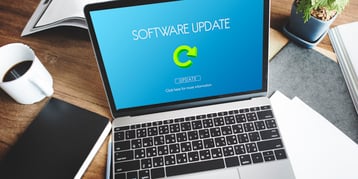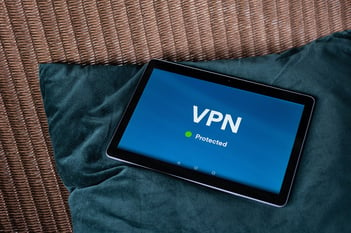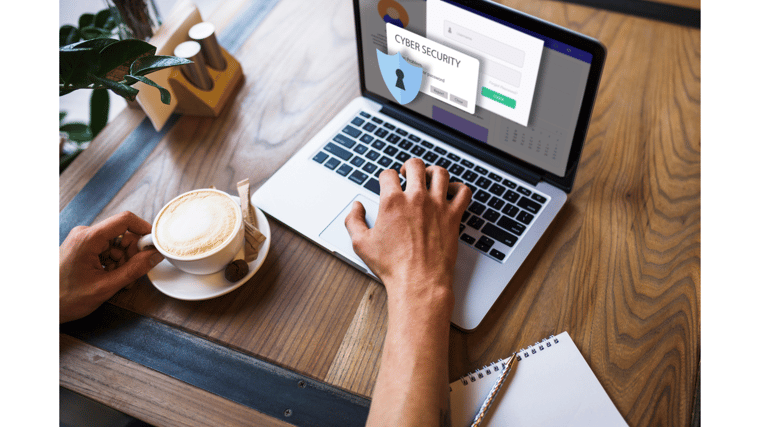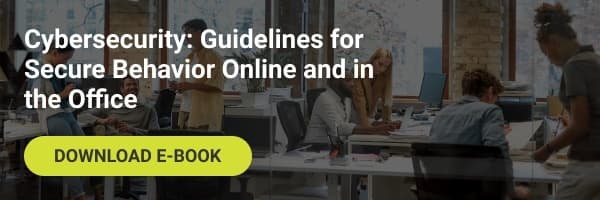However, the convenience of email comes with the inherent risk of security threats, ranging from phishing attacks to data breaches to cyber attacks.The consequences of becoming a victim to email scamming can include theft of data and intellectual property, fines for lack of compliance, downtime, lost revenue and damage to your reputation.
Email security is an evolving challenge that requires a multi-faceted approach to protect both the email account and each email’s contents, be it written, attachments or links. To safeguard your sensitive information and maintain the integrity of your communication channels so further attacks don’t occur, it’s crucial to adopt these robust email security practices.
Read: The Best Practices Against Cyber Attacks
1. Implement Strong Passwords
Your first step should be to enforce strong password policies, including:
- Use a combination of upper and lowercase letters, numbers and special characters
- Make the password at least 19 characters
- Don’t use personal information like your name, birthday or company name
- Use different passwords for each email account, especially your personal vs. work email
- Change your passwords regularly, but don’t only change one character
- Consider passphrases, or stringing together a few words, over a single word with some numbers
- NEVER share your password with anyone, especially if someone asks for it
Strong passwords are effective against brute-force attacks. You can test your password to see how long it would take a hacker to break it. If you struggle to remember all your passwords, consider utilizing a password manager.
2. Enable Two-Factor Authentication
Although strong passwords can be a good deterrent, two-factor authentication (2FA) adds an extra layer of security by requiring users to verify their identity through a secondary method. This ensures that even if a hacker does steal your login credentials, they can’t access your account without the second method. In fact, 2FA can block over 99% of account attacks.
3. Regularly Update and Patch Software
Cyber criminals often exploit vulnerabilities in outdated software to gain unauthorized access. To stop this, keep email clients, antivirus and antimalware software, web browsers and operating systems updated with the latest security patches.
Regular updates can close potential entry points and protect against the most recent malware, ransomware and other cyber attacks. If you struggle to manually update software, enable automatic updates to ensure your software has the latest patches.
4. Educate Users on Phishing Attempts and Think Before You Click
Phishing attacks are a common method used by cyber criminals to trick victims into revealing sensitive information, like account details or financial information, or opening emails with malware. Regularly educate users about the dangers of phishing and how to spot them. For example, phishing emails often try to impersonate someone you trust, like a boss or colleague, and they usually have a sense of urgency for the victim to complete an action before they have time to think about it. Look for spelling or grammar mistakes or unfamiliar sender email addresses as signs of phishing.
Cyber criminals also rely on users to impulsively click on a link or attachment that will release malware. Teach users to stay vigilant and scrutinize emails for suspicious links or attachments, or think before you click. Don’t open attachments or click on links from unknown or unrecognized senders. You can review links by hovering over them with the mouse and seeing if it would take you to a legitimate website or not.
If you’re ever unsure about an email, double-check with the person who sent it. By responding to a scam email, you're letting the scammer know they found a valid email address they can keep targeting for further attacks.
5. Implement Email Encryption
Emails sent over the web can be intercepted in transit by an attacker. Email encryption ensures that your email content is converted into a code and is unreadable to anyone except the intended recipient with the decryption key. This is particularly important when sending sensitive information, like financial, personal or customer data. Another benefit to email encryption is that if you mistakenly send an email to the wrong address, they won’t be able to read it without the key.
You can encrypt through secure email hosting services or web-based encryption services, or you can encrypt emails with most major email services like Gmail, Microsoft Outlook and Android. You should also encrypt attachments so the recipient can’t save or forward the attachment to unauthorized people.
6. Don’t Access Emails on Public Wi-Fi or Unsecured Devices
Be mindful of which Wi-Fi networks you use when accessing your emails. Cyber criminals can easily hack unsecured or public Wi-Fi to access your emails and sensitive data; potentially anyone can track your actions and access your personal information on a public network. Use a virtual private network (VPN) to encrypt your data connection to make it harder for hackers to access your confidential data.
You should also avoid accessing your email on unsecured devices. Make sure you take security precautions with any device you use to access your professional emails.
7. Use a Secure Email Gateway
Implementing a secure email gateway is a way to block malicious emails. This software application connects the internet with your email servers and uses a multi-layered approach to filter through incoming messages before sending them through or quarantining them for further review. They use various techniques to detect and block threats, like spam filters, virus scanners, phishing and malware detection, firewalls and endpoint protection. Some also offer data loss prevention (DLP) features to prevent sensitive data from being sent out via email.
8. Keep Your Work and Personal Emails Separate
Like most people, you probably have a work email and a personal email. However, mixing the two can lead to security issues. You might accidentally send sensitive work-related information to a personal contact, or you could compromise your work email if you accidentally click on a malicious link with your personal email. Never use your personal email for work, or vice versa. Separating the two also makes it easier to manage email messages and stay organized for a better work-life balance.
Thriveon Can Help Protect Emails
At Thriveon, we understand the importance of protecting your email from hackers and cyber criminals. Our managed IT and cybersecurity services help keep your email and its content safe and secure.
Schedule a meeting with us to see how we can strengthen your email security practices.

